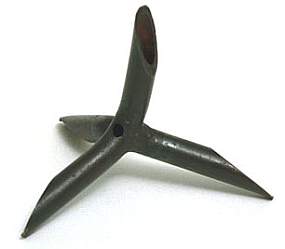Our grass is brown.
I don’t expect to see that the first week of June. Around these parts, May’s the wettest month of the year. Looking back over the month, though, I suspect we got about a fifth of what we normally get rain-wise.
Being of a profession—farming—that makes one acutely aware of a lack of precipitation, I recalled the pastor’s plea on Sunday for rain. All the farmers around here wear that same scrunched-face-to-the-sky look, as if squinting at the lack of clouds will somehow unloosen the water troughs of heaven. They know what’s at stake. Some people can trot out a garden hose to water their backyard gardens, but when you’ve got acre upon acre to “de-parch,” suddenly relying on the mercy of God to send rain moves into the realm of the essential.
So I spent most of the day watching the heavy clouds roll in—only to witness them lightly sprinkle, as if to spite the dessicated soil. An hour of churning skies yielded forty-seven seconds of piddly rain, not enough to be declared a moistening, much less a genuine rainfall. I could literally watch the tiny dark spots on the patio burn off with one blast of rays from the trailing sun. Repeat this three more times today and you get the climatological picture.
A Psalm of David, when he was in the wilderness of Judah. O God, you are my God; earnestly I seek you; my soul thirsts for you; my flesh faints for you, as in a dry and weary land where there is no water.
—Psalms 63:1
I know many Christians who seem just as dry and dusty on the inside as the landscape around here. And it’s not by choice. None desires that state of dessication. Sure, some people exist to soak up pity, but most Christians in those dry places are staring at the heavens with scrunched-up faces, wondering just what the deal is.
Hezekiah encountered the same dryness. Immediately following his healing from what appeared to be a terminal illness, we read this:
And so in the matter of the envoys of the princes of Babylon, who had been sent to [Hezekiah] to inquire about the sign that had been done in the land, God left him to himself, in order to test him and to know all that was in his heart.
—2 Chronicles 32:31
What an arid landscape, the human heart left to its own devices by a God who seems to have gone MIA.
Elsewhere, Job speaks:
“Behold, I go forward, but he is not there, and backward, but I do not perceive him; on the left hand when he is working, I do not behold him; he turns to the right hand, but I do not see him. But he knows the way that I take; when he has tried me, I shall come out as gold.”
—Job 23:8-10
The Lord promises to transform us into gold, from one degree of glory into another. But the process takes us through the dry, weary land, where bones bleach in the sun and every oasis mocks us.
Around 7:30 PM, we got our last drizzle. This one at least painted the gravel driveway a dark gray. The forecast calls for a week of blistering sun. I joined the chorus of farmers around 7:50 as we collectively sighed and wondered how a forecast of three days of thunderstorms yielded 0.1″ of rain.
Mid-headshake, my son came into the house, face beaming, telling me he saw “a double.” A double what?, I thought.
On the south side of Edelen Acres,  Roy G. Biv hunkered down alongside his twin brother. Two arcs of inverse colors bent across the sky.
Roy G. Biv hunkered down alongside his twin brother. Two arcs of inverse colors bent across the sky.
I took this time to remind my son of the promise behind the sign, a promise that states that because of His covenant promise, God’s wrath turns away when He gazes from heaven upon the bow stretching across the sky. With all promises come hope, what lingers when all the prayers have been said and the mustard seed of faith is left to sprout in the soil moistened by God’s provision.
It’s a dry, weary land, but it won’t always be.

 A few live in such self-deception they don’t even know they’re doing it. Still, most do know—and they hate themselves for it.
A few live in such self-deception they don’t even know they’re doing it. Still, most do know—and they hate themselves for it. Wouldn’t want to be the horses—or the pitched rider.
Wouldn’t want to be the horses—or the pitched rider.